#bengali authors
Explore tagged Tumblr posts
Text
Chirakaler Chhara by Sunil Jana PDF
Chirakaler Chhara Rhymes books by Sunil Jana PDF. Book – Chirakaler Chhara, Edited Author – Sunil Jana, Format – PDF, Book Pages -240, PDF Size – 4 MB, Genre – Bengali Rhymes Books, Edited Book, Digital published by Digital Library of India, Sunil Jana edited the child rhymes book Chirakaler Chhara The rhymes book ‘Chirakaler Chhara’ is compiled by writer Sunil Jana. Many writers have written…

View On WordPress
0 notes
Text
How It Started (Part 3): The Bengali Boy
I have come to terms with the fact that I am not easy to work with.
Okay, I’m trying really really hard to come to terms with it.
“Cotton Candy on a Rainy Day” is one of my favorite poems and, in the words of Nikki Giovanni, “I know I’m not an easy girl to love.” (Technically, the poem says “woman” but I don’t want to get in trouble for copyright mumbo-jumbo.)
‘I’m very opinionated,’ is what I’m trying to say. I’m passionate, and sometimes that passion means that I have to stand my ground, even when it makes me less popular.
Ya’ll remember that I tried to make a comic with a pinoy artist last year?
Well, a few months after our ugly business-partner break up (might go more into how that whole mess ended later) an Indian artist hit me up asking if I wanted to work together on a project. I’d grown a bit less enthusiastic about partnerships thanks to my previous experience, but I still agreed to give it a shot.
This new artist had a lot of suggestions/preferences for the project. No problem. In my opinion a good partnership means meshing everyone’s ideas into something both parties can be happy with, so I tried really hard to adapt to my new partner without sacrificing my artistic integrity.
She wanted to write a story that would draw a lot of fans and make us money. I try my best to write for the sake of artistic expression, rather than profit, but I agreed we could try to write a story in a more popular genre to increase our likelihood of gaining supporters.
At first the artist was thinking “dark romance,” but dark romance isn’t really my jam.
So, still in the interest of business and “what sells,” she asked if I could do a romance-fantasy story.
I agreed.
I love speculative fiction. I write romances. I hadn’t written a fantasy romance since I was 13, but it would be fine.
Or…that’s what I told myself anyway.
The artist's second request was that I make part of the cast Indian, because she was Indian and wanted to see more Indian characters in the media. Again, I agreed. No problem.
I love mixing ethnicities in my fictional casts and have already put numerous Indian characters in my other stories. Adding a few Indian characters would have been easy, but just to lean into her request, I decided to set the story in a modern fantasy world where everyone was either Indian or Dominican.
It was whimsical and leaned into my quirkiness. I also thought it could make our story more of a “blue ocean” because I don’t know of ANY other stories that have mixed those cultures together.
But then she wanted some changes.
For one thing, she asked me to change the male lead's surname. She didn’t like the way the surname ‘Sarkar’ sounded. I liked the name Sarkar, but she asked me to change it insisting “Trust me, I’m Indian. I know how it sounds.” To be honest, that felt condescending, like the decision to give him the surname ‘Sarkar’ was somehow wrong or silly, rather than a matter of preference.
She strongly suggested that I give him the surname ‘Roy.’ I didn’t care for the name, so compromised, changing his name from ‘Sarkar’ but not to ‘Roy.’
Then she asked me to change the plot I had written. She wanted the male lead to have secretly fallen in love with the female lead before she fell in love with him, though she didn’t know he was in love with her.
I agreed to keep the idea in mind, but as it didn’t really make sense with the rest of the plot, and was kind of tropey, I didn’t think I would be adding that suggestion. Maybe it was unreasonable, but by that point, I was starting to get a bit frustrated.
Then she commented on the fact that all the main characters had dark hair and dark eyes.
In my mind that made sense, because most Dominicans have dark hair and eyes and every Indian I’ve ever met did too, but again, I compromised. No problem.
I gave the Dominican female lead silvery-blue eyes. It’s a rare trait, but thanks to the fact that most Dominicans are part European, some of us do naturally have light colored eyes and even blonde or reddish hair. I’d recently read a book by Madhur Jaffrey which mentioned that some Indians have naturally red hair and green eyes, so I decided to make the female lead’s Indian bff a ginger with green eyes.
Finally, I thought, we could move forward. I made reference image folders on Pinterest and got to drawing character design sheets for the artist to use as a reference.
I successfully completed three.
We hit a sticking point when I drew the male lead.
We’d agreed toward the beginning of the process that we would make the male lead Bengali and the female lead Dominican.
While the different Dominican characters had varying features (slanted eyes, round eyes, blue eyes, dark eyes) and complexions (from dark brown sugar to cashew), they all fell under the umbrella term of “Dominican” because we don’t have different distinct cultural groups and languages.
The Indian characters, however, would be from different cultures, primarily Bengali and Rajasthani, and I was pretty proud of the diversity of features and complexions I had given them all. One had medium brown skin, one had a caramel-brown complexion, and the male lead was dark, chocolate brown.
Up until that point, most of my ethnic male leads had light or medium brown skin tones, though some of my female leads had very dark, or even (literally) black skin tones (I’m looking at you, Essence Walker and Mora Glas.)
I personally think dark skinned people need more representation in the media, so when this character appeared in my mind with a beautiful ‘dark brown sugar’ complexion, I rolled with it instantly.
But…the artist didn’t want him to have dark skin.
In fact, she wanted to give him light brown skin and hazel eyes, saying that dark hair and dark eyes aren’t actually that common in India, and north Indians usually don’t have very dark skin.
“He doesn’t look Bengali.”
Even after all I’d read about colorism in the Indian subcontinent, I didn’t really know how to respond to that statement.
I realize I’ve never been to India or Bangladesh, so I didn’t want to disregard her opinion, but I also know it’s foolish to accept any one person’s statements as fact without getting cross-references.
Doing a little research, I found that 98-99% of the population of Bangladesh is Bengali by ethnicity (though their nationality is “Bangladeshi.”)
Then I looked up some articles from Bengali newspapers and surprise-surprise, most of the people in the crowds had medium to dark brown skin, as opposed to the medium to light brown complexions which the Indian artist had told me were most common.
I sent the artist these images for reference, but still she insisted that Bengalis don’t look like “these dark-skinned people.”
So who was I supposed to agree with?
I don’t want to disregard anyone’s opinion, especially when it comes to subjects where I KNOW I am ignorant.
But the articles I’ve read by Indian and Bangladeshi people keep insisting that there are dark-skinned people in India. The videos filming ordinary citizens in Bangladesh and West Bengal all show footage of dark or dusky skinned people.
So I couldn’t in good conscience lighten my male lead’s complexion.
Especially not when the artist praised the characters having rare European features but was opposed to giving the male lead dark skin, which she also claimed was ‘rare,’ though possible.
Red is the rarest hair color in the world but the artist liked it when I gave one of the Indian characters red hair and green eyes -
Just not when I give the Bengali boy dark skin.
It really really rubbed me the wrong way, so I ended the collaboration before things could go down hill any further.
Even after my other failed partnership, it still wasn’t a fun or easy decision.
I don’t WANT to be a pain. I don’t want to be difficult to work with. I’d already changed names, hair and eye colors to suit her preferences, but there are some places where I need to put my foot down.
As our argument over the male lead’s skin continued, she’d shared her plans to make all the Indian character’s light-skinned, and I simply couldn’t agree with that.
For too long, the whole world has scorned dark skin and refused to give dark-skinned characters a turn in the spotlight. India is no exception. Skin-lightening creams have been renamed (yes, I learned about “Glow and Lovely” because of this situation) but the problems still remain.
Dark/dusky skin is scorned. People refuse to acknowledge it as beautiful. I refuse to work on a project that perpetuates this disparagement and mistreatment.
This bigotry needs to end now.
Dusky skin is beautiful. It doesn’t make you any less Indian.
My male lead will have dark skin, even if I have to wait years to find another artist who is willing to draw him in all his glory.
#colorism#bias#dusky skin#bengali#Bengali boys#stories#real life stories#real life horror stories#life stories#Indian#Indian characters#Indian boys#Indian girls#Dominican girls#Dominican girl#dominican#authors#hispanic authors#writers#bigotry#unfair and lovely#dark skin#dark skin is beautiful#outside the beauty box#the beauty box#beauty standards#toxic beauty standards#brown skin#brown boys#brown girls
4 notes
·
View notes
Text
অধিকারলাভের যে মর্যাদা আছে, সেই মর্যাদা রক্ষা করিতে হইলে অধিকারপ্রয়োগকে সংযত করিতে হয়। যতটা পাওয়া যায় ততটা লইয়া টানাটানি করা কাঙালকেই শোভা পায় — ভোগকে খর্ব করিলেই সম্পদের যথার্থ গৌরব
- রবীন্দ্রনাথ ঠাকুর (চোখের বালি)
Video credit : Social media platform
#chokher bali#Rabindranath Thakur#rabindranath tagore#love#novel#pain#authority#desiblr#desi tumblr#me#desi teen#quotations#desi academia#being bengali#bengali song#bengali movie#aishwarya rai#aish#movie#bengali#ভালোবাসা
10 notes
·
View notes
Text
“আমি যাহাকে কেন্দ্র করিয়া ঘুরি, না পাই তার কাছে থাকার অধিকার, না মেলে দূরে যাওয়ার অনুমতি।”
~শরৎচন্দ্র চট্টোপাধ্যায়
Translates to- "Whom I revolve around, I do not get the right to stay near, I do not get the permission to go away."
#writers and poets#qoutes#bengali poetry#bengali#bengali qoutes#writers#writerscommunity#writerscreed#authors#authors on tumblr#shorotchondro#শরৎচন্দ্র চট্টোপাধ্যায়#উক্তি#বাংলা#লেখক#উপন্যাস#writeblr
12 notes
·
View notes
Text
"Who are you, reader, reading my poems an hundred years hence? / I cannot send you one single flower from this wealth of the spring, one single streak of gold from yonder clouds. / Open your doors and look abroad."
Read the English translation here
Read The Gardener in English through Project Gutenberg here
Reblog for a larger sample size!
#i cannot find the original bengali#or the original author#it seems like there is no one original poet for the book#according to project gutenberg /the gardener/ is a collection of english translations of bengali poems#mostly from a book called#gitanjali#closed polls#polls#poetry#poems#poetry polls#poets and writing#tumblr poetry#have you read this#poem 85#poem 85 the gardener#the gardener#rabindranath tagore#bengali poetry
4 notes
·
View notes
Text
10 Best Songs of Arijit Singh

#changed into a decent scholar#but cared greater about song#Fame Gurukul#Tum Hi Ho#His maternal uncle played the tabla#and his mother also sang and played the tabla. He studied at Raja Bijay Singh High School and later on the Sripat Singh College#a University of Kalyani affiliate.According to him he and his dad and mom decided to teach him professionally.#He was taught IndiArijit Singh was born on 25 April 1987 in Jiaganj#Murshidabad#West Bengal to Kakkar Singh#a Punjabi Sikh father and Aditi Singh#a Bengali Hindu mother. His paternal circle of relatives came from Lahore in the course of the Partition and in this we also tell about the#and his maternal grandmother used to sing.#an classical song via Rajendra Prasad Hazari and educated in tabla with the aid of Dhirendra Prasad Hazari. Birendra Prasad Hazari taught h#he started training beneath the Hazari brothers#and at the age of 9#he got a scholarship from the authorities for training in vocals in Indian classical tune.#Arijit Singh#a call synonymous with soulful melodies and heartfelt renditions#has etched an indelible mark on the Indian song panorama. Hailing from Jiaganj#West Bengal#his adventure to stardom is a testimony to raw records and unwavering perseverance. Emerging from the crucible of truth television#wherein he showcased his vocal prowess on Singh's career trajectory took a huge turn on the equal time as he have come to be an assistant t#His soar ahead arrived with the coronary coronary coronary heart-wrenching numbers “Tum Hi Ho” and “Chahun Main Ya Naa” from the blockbuste#imbued with raw emotion and a vocal range that results traversed from sensitive whispers to effective crescendos#catapulted Singh into the limelight.#His functionality to seamlessly combine classical influences with modern tunes gave beginning to a totally particular sound that resonated#Singh's repertoire is a testimony to his versatility as an artist. From the melancholic pathos of songs like “Tere Bin” to the infectious p#he has examined his mettle over and over. His voice#a rich tapestry of emotions
0 notes
Text
I can’t write anything in any languages because I am very stupid but one thing I can write about is the realisation in my early twenties around the limitations of English because when you grow up surrounded by English as a primary language you are told so often that it is the language of the greatest writers of all time, that it is the language of poetry and novels etc.
And I think it’s very easy to buy into that because of the hype around some of our great writers who are really… great!
But then! You start to learn about the world lmao. You start to learn about the precision of Polish prose in novels and the very deliberate ways of communication in plays that are so much more rigorous than the English conventions. You watch a play in the original Norwegian and realise there’s all this tonal play happening that you missed in English. You start to read Russian novels where people talk three different languages to denote social class and communication styles. You start to notice a particular kind of narrative convention in Swedish novels and Colombian novels that aren’t in British novels and you start to wonder how much more you’re missing in translation. You learn of the term “anglosphere” that East Asian authors use to describe the very limited rules that the UK and America have put onto storytelling, and how Bengali has a formal language that exists solely for poetic expression and philosophical thought that has almost never been properly translated into English because it can’t be.
And then you remember there’s a word in your own family’s language in the UK which has no direct translation to English too.
#read in translation lol and marvel at the world of translators for real but also#go see plays you know well in their original language and find a whole new layer of aural play
72 notes
·
View notes
Text
"Breaking" the gendering of media: A case study on Shiguang
A question kept coming back to my mind again and again, that why do we tend to criminalize whenever we see a media which was "canonically" (the term canon icks me to the core) built to portray a broader political or social issue being used to deconstruct personal emotions? For example, a song used to portray the pain and horrors of partition being used to reconstruct the grief of personal loss and also about loss of identity. As if talking about personal loss is making a topic less serious or not respecting the depth of a subject. As if it is the continuation of the gendering the places being implicted upon media. The "oikos" (the personal space) , the "non serious" personal emotions are not meant to be dragged into the "polis" (the public sphere). When we take the journey from the home to the world, our personal journey becomes a palimpsest of many others which give us a feeling of community. When we get the feeling that our dilema is not only ours but a shared feeling of many, we tend to raise questions and break the boundary of the "home and the world", it tend to give us a vocabulary to curate.
Link Click as a series breaks this notion of differentiating between the the struggles. The suffering of the world is mine as well as my sufferings are also a matter to discuss, to analyze and to deconstruct, it's of everyone. For example the the incidents of sudent suicide due to excessive educational loan or even if it is about trying to save one's mother or about spreading the word of love, even if it is about the very domestic banters of Shiguang or it is about taking a step further to help Xu Shanshan and not taking money from her and just mere "helping" her to unite with her beloved .
As a very close friend of mine once mentioned " Shiguang through their love creates a brand new "vocabulary" of love" (if they gives me permission I will definitely tag them), the vocabulary enables them to question the normativity. And questioning the normativity makes you a threat to the authority - cause when you ask the right question at the right time , it makes your identity identifiable and then the authority can't treat you like a mass, a mass to be dismissed, to be discarded. I can't control my urge to quote Derek Walcott's "The Schooner's Flight" here- "I am either nobody or I am the nation" .According to me, probably this is how censorship also works - they fear the creation of the new vocab. The love which revolts but don't conform: a love which doesn't leave , but questions the normativitives. We try our best within our capacity - but what love does it doesn't know the capacity. ( They just don't know, how much love is too much love). That's what is so unique about the love of Shiguang. Here I am gonna quote TGCF " Your Highness..do you know why I refuse to leave this world?... because I still have a beloved in this world." - বিনা যুদ্ধে নাহি দিবো সূচাগ্র মেদিনী - ( I will not leave even a pinch of soil, without a fight). The guts to challange the person in control even though one is not sure about the price he has to pay, even self anhilating from each and every freaking time is probably a better option. You are not someone I choose over everything, you are the one who is inseperable from the concept of "being" of mine- you are the "I" of my eye.

The abilites here not only stand for the ability to change, but taking away the ability also stands for usurping one's ability to try, the silencing of emotions. Once your voice is strangulated you are creating a "destiny" for the opressed it is no longer their fate. Here I am gonna refer to a Bengali song "মোদের কোনো দেশ নেই,মোদের কোনো ভাষা নেই" (We don't have any country, we don't have any language)
youtube
But do you know where link click breaks the very gendering? When it identifies the silencing, the numbing. Many media portrays the consequences of the silencing, how the torture affects the people etc etc. But Link Click does is, it identifies where the mess ups are and it doesn't promise that "everything will be ok" and life will be "a bed of roses". No, it never will be- that's not what post modernism teaches us. Rather, Link Click teaches it may not be a smooth walk but still we will take the path as there is no "correct" path. As the author of the Ronxi chronicle mentions - it may not be the easiest path but you will never regret it. The concept of "correctness" is a construt, the "originality" is a mere myth and "TIME"!! … As we all know " Time is a hypocritical construct"...
#guangshi#link click#lu guang#cheng xiaoshi#shiguang daili ren#shiguang#shíguāng dàilǐrén#donghua#时光代理人#time agents#queer love#queer joy#Youtube#shi guang dai li ren#guang guang#sdglr
30 notes
·
View notes
Text
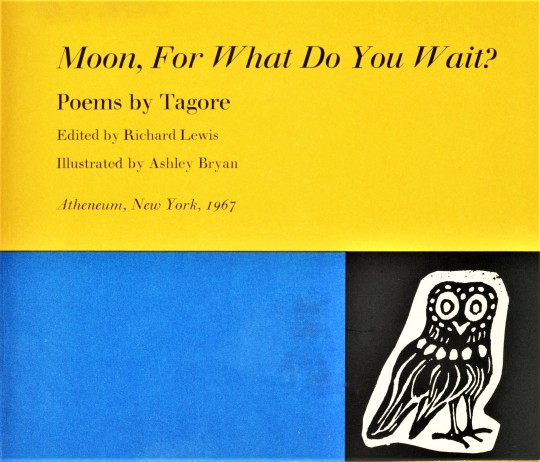
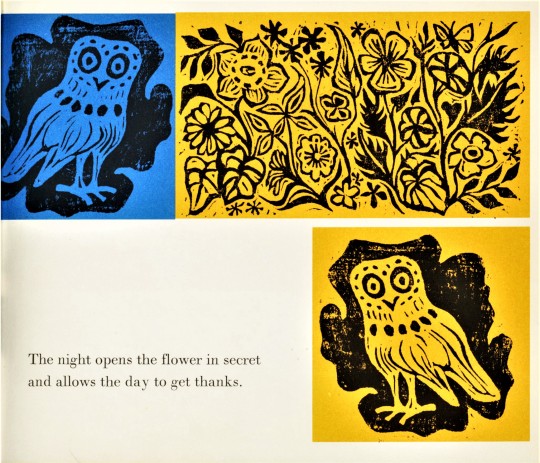

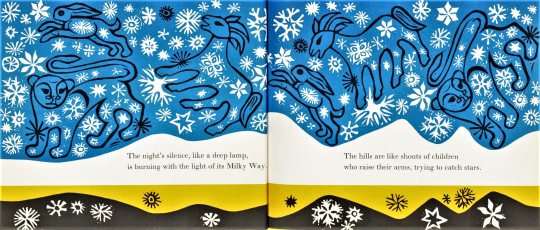
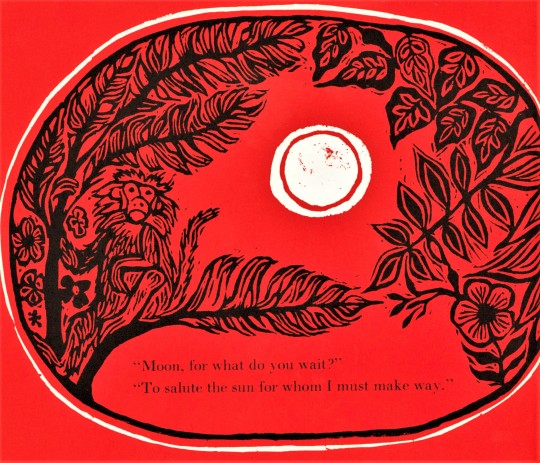
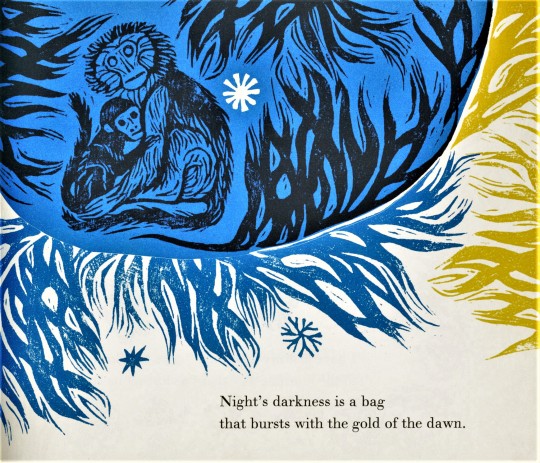



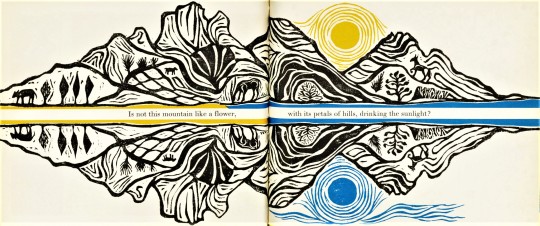
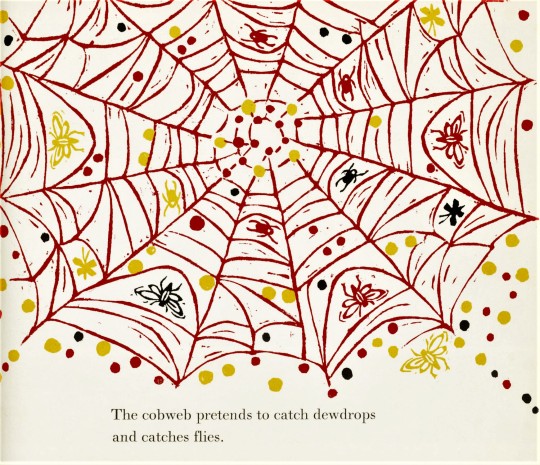

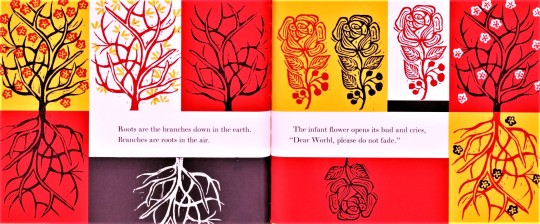
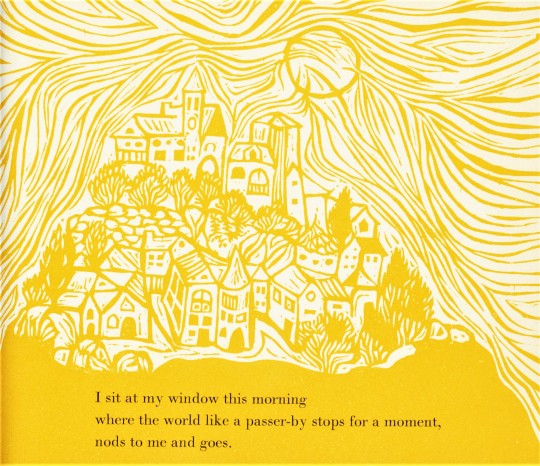
National Poets Day
On this National Poets Day, August 21, we celebrate the work of Bengali poet Rabindranath Tagore (1861-1941). Tagore began writing poetry as a child and remained committed throughout his life to exploring the natural and spiritual world through poetry and prose. He was known as the “Bard of Bengal” and in 1913 became the first non-European to be awarded the Nobel Prize in Literature for his collection of poetry Gitanjali.
Within the Special Collections we hold the first edition of Moon, For What Do You Wait?, a collection of Tagore poems from his 1916 publication Stray Birds which consisted of 326 verses. Published in 1967 by Atheneum, Moon, For What Do You Wait? was edited by Richard Lewis, director of the Touchstone Center for Children in New York City, with illustrations by award-winning artist and author Ashley Bryan (1923-2022). Lewis manages to whittle down Tagore’s lines without losing any of the imbued wonder and delight present in the original publication. Accompanied by Bryan’s bold illustrations, readers are encouraged to let their eyes wander over the pages, getting lost in prose and imagery.
View more poetry posts.
-- Jenna, Special Collections Graduate Intern
#National Poets Day#rabindranath tagore#moon for what do you wait#poets day#ashley bryan#richard lewis#atheneum#tagore#stray birds#poems#poetry#children's books#Historical Curriculum Collection
248 notes
·
View notes
Text
intro post <3
don't mind me editing this like every single day lol
my dm's and askbox is always open if u want to talk <3
anons are welcome too <3
also if u want to make new friends i am right here pls say hi im fucking lonely😭
anyways


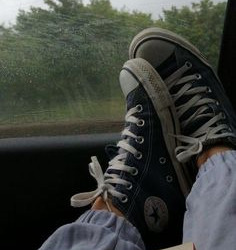

BELOVED MOOTS <33333 (everyone is tagging them and this is fun)
this in no particular order just whoever pops up on my dash or smth idk. not every moots just the ones i actually know lol. ok so
@im-ur-sleep-paralysis-demon THEY'RE AMAZING LOVE THEM SM IF U DON'T FUCK OFF BECAUSE OMG KJHLGJKFJHLKYFJHKJGL
@ma-lan13 HELP MY BESTIE IRL GOT TUMBLR OMG OMG. AND SHES ACTUALLY USING IT WTF?????? ANYWAYS SHES THE BEST <333
@bloophasarrived SHE'S THE SWEETEST AND SO WONDERFUL. HER PERSONALITY SPARKLES AND OMG SHE'S SO FUN AHHH
@marylily-my-beloved I LOVE HERRR WE HAVE THE BEST CONVERSATIONS. SO NICE AND EASY TO TALK TO. AND WHY DOES SHE KNOW ME SO WELL <3333
@im-just-here4853 my vent buddy omg we just vent to each other i love her so much idk what i would do without her <33
@im-on-crack-send-help TWINNING IN LITERALLY EVERYTHING. SAME MUSIC TASTE. SAME TASTE IN FOOD. IN DRINKS. IN THE WAY WE THINK. WTF. ANYWAYS SHE'S MY POOKIE I LOVE HER <333
@the-gay-skeleton-in-ur-closet THEY'RE THE BEST OMGGGGG and they're nice and cool and shit <333333 i'm quoting myself it's fine AND LIKE SO NICE AND GOOFY AND EVERYTHING OMG
@cubemagnet somene i met on a random post and now we occasionally team up to correct grammar lol 🤓🤓🤓 anyways she's amazing :D and everything she says is so iconic like isjflsrijglruhglsuglijrsg
@book-girl4eva SHE'S AMAZINGGGGG. IT'S SO EASY TO GOOF AROUND W HER I LOVE IT. SHE ALWAYS SLAYS SO HARD. EVERYTHING ABOUT HER SLAYS. idk if you'll see this but this is for u pookie <3
@mil-pinterest-sss-here-i-am ??? questioning why we're moots. but he's literally so nice. literally will be my therapist and help me w maths because that shit is impossible 😭
@dandelionflowery omg literally so kind and everything all the time. so fun fun reading their fics and doing shit together omg
@sweetwarmcookies16 OMG RIJGDJFGIJFGIF THE BEST I LOVE PLAYING GAMES TOGETHER AND TALKING AND EVERYTHING. ALSO AN AMAZING WRITER
idk brain isnt braining ill add ppl as i go along
moodboards made by my lovely lovely moots <3
so far i only have one here cause i forgot to link the previous ones whoops 😭😭😭


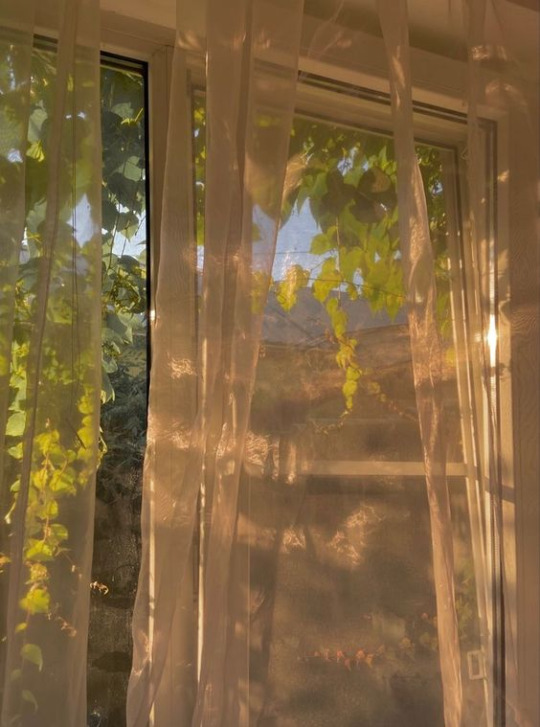

about me
i'm ari. she/her. nicknames welcome. go wild. dude/bro/girl/literally anything is also fine. i use 'lol' and '<3' too much. minor. literally the biggest procrastinator and so disorganised i dare u to find someone worse than me. i'm indian but i live in australia. bengali/north indian idk. band kid :D my pinterest is here. PLEASE DM ME IF U WANT TO. I NEED FRIENDS. IM AWKWARD AND BAD AT MAKING CONVERSATION BUT STILL PLS 😭😭😭
personality/star sign or whatever
according to the mbti test here i am an istp-t. i am also a cancer. i found out my sun, moon and rising signs and the marauders version and i wrote it down and lost it so then i redid it and i lost it again so i can't bother at this point someone help me :(
time zone
Australian Eastern Standard Time (AEST) i think?? SUCK ON THAT AMERICANS AND WHOEVER ELSE EHHEHEHHEHE ;LSDJFSFJIJFDJF;LJ

my music taste
i love taylor swift, conan gray, olivia rodrigo, sabrina carpenter and honestly a lot of other stuff lol. also love bollywood music.
favourite books and authors
i love reading and i'm usually a really fast reader lol. i love harry potter (fuck jkr tho), kotlc, chetan bhagat books, the inheritance games, agggtm, literally all of karen m. mcmanus's books, the divergent series, pjo and hoo, lorien legacies, the selection, powerless, soc, girl in pieces, dictionary of lost words and bookbinder of jericho, all the books by amish, and a bunch of other books.

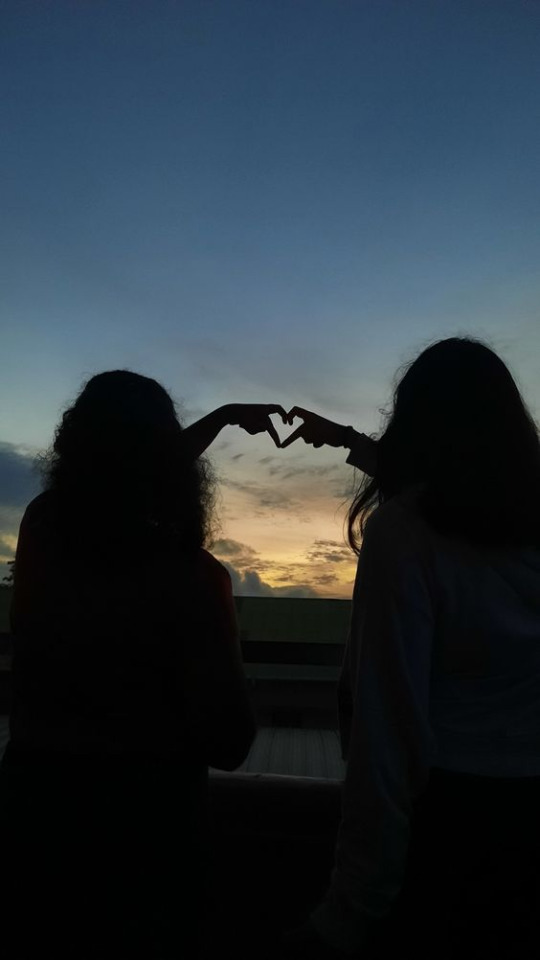
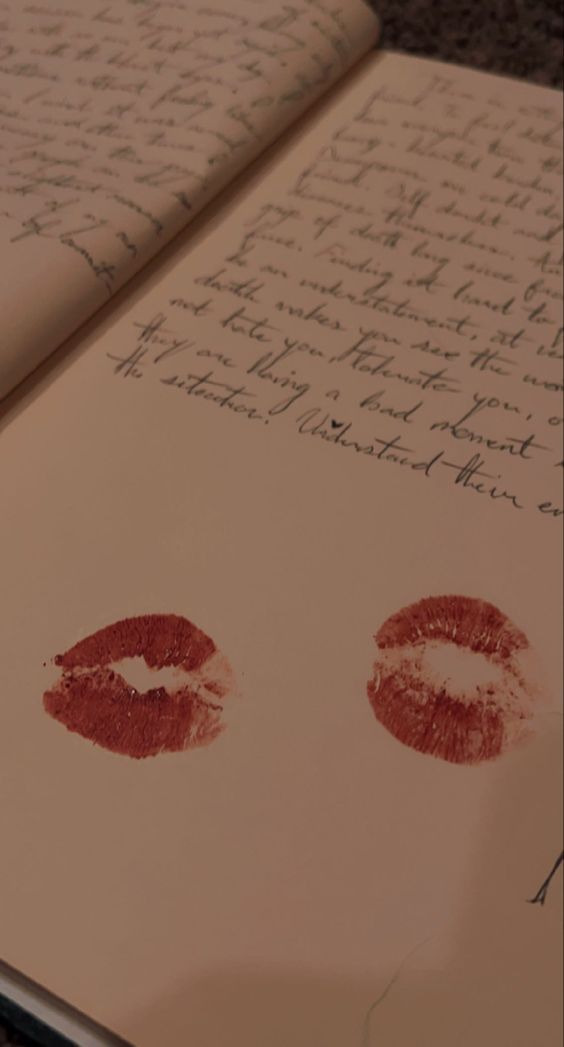

dni
idk the usual?? if u think ppl arent valid or you're literally an asshole. honestly you all can go get stuffed. idgaf
tag games and shit
yes you can absolutely tag me. i love tag games and chain asks. sometimes i may not get to doing it but i usually will and it makes me so happy when i'm tagged lol
tags
i don't post that much stuff so i don't really have mulitple tags for my posts. anything or any shitposting or thoughts will be tagged #ari's shit. for asks it's #ari gets an ask?
fandoms!
i'm literally obsessed with drarry but i'm mostly part of the marauders fandom. i'm starting to make my way through all of the marauders fics. i love love love hermitcraft. i'm an ethogirl literally who doesn't love etho?? also really into trafficblr. i literally love six of crows so much like omg. desperately trying to get through the magnus archives im only 8 years late haha i also love kotlc sm. (team foster-keefe forever!) i'm low-key in love with keefe sencen cause omg. aaaand also a bunch of other shit but those are the main ones idk bro

i'm bored and this is too long already might as well add more so here are a bunch of userboxes :D














and that's all not because i have self control but because there is a limit to images per post 😭😭😭 i literally had to delete some of my aesthetic images for this soooo

all the above photos are not mine, i got them off of pintrest.
my profile pic is obviously from the makowka picrew here
the beautiful dividers are linked here. these are by @saradika-graphics she is a literal star these dividers are so good
IK THIS IS WAY TOO FUCKING LONG AND I KEEP ON ADDING SHIT MORE SHIT SO IF U ACTUALLY LIKE READ TO THE BOTTOM THIS HERE IS FOR U LMFAO ILYSM <333333
82 notes
·
View notes
Text
Recent reads - women in translation
Child of Fortune - Tsushima Yuko, 1978, tr. Geraldine Harcourt
Orignally published in Japanese. A single mother with a difficult relationship with her 11 year old daughter finds herself pregnant again after an affair. A dreamy and flashback-centred short story of motherhood and alienation.
The Mermaid’s Tale - Lee Wei-Jing, 2019, tr. Darryl Sterk
Originally published in Mandarin. A lonely woman in her thirties with an obsessive love for Latin dance attempts to make peace with her past and her body. Blends the whimsical and the excruciatingly real.
Consent - Vanessa Springora, 2020, tr. Natasha Lehrer
Originally published in French. A wrenching memoir of the author's sexual abuse by a celebrated author as a teenage girl, and the culture that colluded with her abuser. Devastating.
A Woman of Pleasure - Murata Kiyoko, 2013, tr. Juliet Winters Carpenter
Originally published in Japanese. In 1903, a teenage girl tries to survive after being sold into sex work. The novel's brutality makes its moments of light even more poignant.
Masks - Enchi Fumiko, 1958, tr. Juliet Winters Carpenter
Both a novel of tragedy and manipulation and an exploration of the role of women in noh theatrical tradition and the Tale of Genji. Lingers in the mind long after reading.
Abandon - Sangeeta Bandyopadhyay, 2013, tr. Arunava Sinha
Originally published in Bengali. A mother's conflict between caring for her sickly young son and her desire to abandon motherhood to pursue her art is personified by two narrations by the same "character". A fascinating self-referential novel that raises many questions on the conflicts between art and humanity.
21 notes
·
View notes
Text
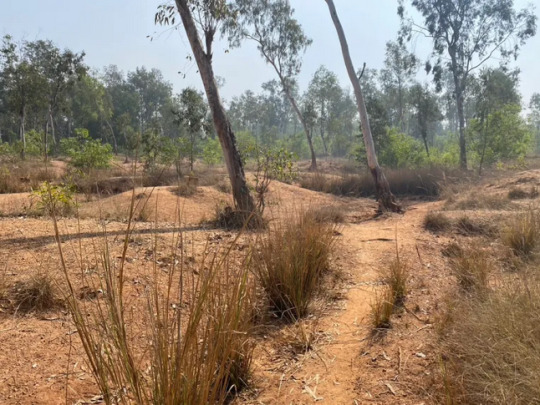
The “khoai” is the name colloquially given to [...] landmasses in and around the Chotanagpur Plateau in eastern India. Rich in iron oxide, these [...] soils are marked by a rugged and often undulating topography, resulting from millennia of erosion from monsoon rains, the many winding rivers that populate the region and action of winds from summer thunderstorms, popularly termed in Bengali as “Kalboishakhi.” The winds and the rains of the kalboishakhi dance across the lands adjoining the Bay of Bengal, often arriving at the horizon with ominous dark clouds right before sunset. [...]
The khoai is a charismatic frontier in an ongoing conversation within South Asian developmentalist imaginaries that call for optimal land use for the purposes of economic growth. [...] As the lateritic soil of the region is not suited for intensive agriculture, efforts have been made to make vast sections of the region arable [...]. And so, slowly, the red soils get taken over the green [...]. This is often done by breaking gullies and hoodoo-like structures [...] to flatten the lands [...]. The ongoing project to turn such “deserts” green has a long history. Yet alongside these projects, is the place that the khoai have in the literary, cultural, and spiritual imagination of many [...] that inhabit the Chotanagpur Plateau. The vastly open and hilly topography, dotted with sal forests [...] has often been the fodder for songs of longing [...]. The horizon of the sky meeting the red gullies of the badlands also form many a narrative that appear in local folk songs and stories. [...] They have also been sites of community-based agroforestry.
---
Recently, such badlands have been termed unproductive in and around my hometown of Santiniketan, India.
As South Asian developmental imaginaries wholly absorb the understanding of terra nullius from modern Euro-American conceptions of land, the idea that “badlands” are necessarily “wastelands” become cemented. Once beloved [...], the dark brown-red hoodoos and gullies today are seen as wasted potential that are depriving the public of much-needed resources, and the possibility of the coming of civilization in accordance with upper-caste aspirations. Khoai today have become sites for proposed plantations facilitated by local forestry authorities, holiday homes and cafes [...], luxury resorts [...].
The ethos of invoking terra nullius has travelled into discourses surrounding “practicality” and the absolute necessity for villagers and small town folks in the area to be saved by their urban-dwelling upper caste counterparts [...] who are interested in their cultural practices, seemingly idyllic agricultural lifeways and the simplicity away from the stresses of cities such as Kolkata. But in this framework, the imaginaries of development are necessarily embedded in compulsory extraction, whether that be of cultural economies, minerals, timber, or land for development. [...]
[B]adlands get turned into places that need saving from being “wasted” by the carelessness and unimaginative shortsightedness of villagers and Adivasis, who are simply seen as ill-equipped to deal with the progression of the global economy.

These days, it is hard to find a piece of the “khoai” that has not been subjected to projects of agriculture, forestry, or have been subjugated to [...] property ownership [...]. As the figures of the plantation and its attendant cultures of enclosure and theft of commons creep into places previously overlooked by the tentacles of global extractive forces, many, if not most khoai areas are mobilized to be “redeemed” into productive little plots legible to capital.
I have to wonder about the processes of consent and negotiation that have informed such projects. [...] These areas were in the past predominantly inhabited by Adivasis or Indigenous peoples of India, who had resisted the [...] hierarchies [...].
Badlands such as the “khoai” present a challenge to capitalist imaginaries because they defy its temporalities and its compulsion to make all aspects of being productive and legible to exchanges that foster logics of uninhibited growth. [...]
What, then, does it mean to care for wastelands? [...]
What histories are paved over by concrete? What does development mean in places where inequality is still rife, but there are shiny new roads? What does a future look like, where we can let badlands and “wastelands” just be, as part of ecological and cultural commons?
---
All text above by: Aadita Chaudhury. "Caring for Badlands". The Otter, Network in Canadian History and Environment (NiCHE). Emotional Ecologies series. Ed. Jessica M. DeWitt and Sarah E. York-Bertram. 14 July 2023. [Photography by Aadita Chaudhury, included in the original article. Bold emphasis and some paragraph breaks/contractions added by me. Presented here for commentary, teaching, criticism purposes.]
102 notes
·
View notes
Text
Reading Jhumpa Lahiri’s “The Namesake” was a riveting, almost delicate business for me. At several times I felt so attacked by the author that I was tempted to put the book down, yet the fragile personas of the characters drew me on past the pages.
It is a book from my Australian school’s English novel list. And so is “Wuthering Heights” or “Jane Eyre”. I read those with equitable interest, overanalysing every sentence, theme and character. I read background books, tried Milton’s “Paradise Lost”, Emily Brontë’s poems, Jane Austen’s “Pride and Prejudice”, all about the Brontë sisters’ household. I stormed through shelves in my university library, took refuge to the bedroom for reading up to late hours; I worked in a fever dream. The sheer excitement of navigating my way past great pieces of literature felt rewarding in itself. It was a foreign experience; as I had learned, along with my Bangladeshi peers, to read what was on the syllabus, without questioning what was within.
It all felt great, until I hit home.
All the above mentioned are written by individuals with whom I do not share my skin tone, my food habits or my accent. Therefore I “explore” them but not find myself within. Like an impartial observer, I rate this or that.
But Jhumpa Lahiri’s “Gogol” would not let me do that. His parents are Bengali, just like me. He is an American-Indian, just like I have a hyphen between my nationality too: Australian-Bangladeshi. And he is frivolous, which with great pains I will admit being too. His faults feel mine. Or at least, he annoys me, gets under my skin.
The novel opens with his birth and early childhood. He grows up indifferent to his ethnicity, preferring English, beef and high school parties over embracing Bengali, white rice and being involved in the culture he has a rightful share in. His family gives in too. I find myself enraged at their conduct, feeling grateful I came to Australia at a ripe age of sixteen- I am incapable of deserting my roots now. Then again, I discover that I have the same mentality as a middle-aged desi aunty, how shameful is that! Shouldn’t I be open-minded, and accept that Gogol has to cope with the country he was born in, rather than the one he has no attachment to?
Gogol’s mental stigma about his name is another side to his character that appears immature to me. He hates sharing a name with a Russian author, whom he finds demented than inspiring. He never sets to find out why his father Ashoke named him after his favourite Nikolai Gogol. It is a story he seeks out too late, a few weeks before Ashoke’s sudden death. He changes to “Nikhil”, even though he mentally admits no one, except he himself, has ever pestered him for the name he was born with.
Even though it isn’t directly pronounced, Gogol (now Nikhil) always tries to break free of Bengali “norms” and his parents’ expectations, unapologetically. This is reflected in his numerous love affairs with various women. But his attention is always fleeting. He’d rather be on holiday with his girlfriend’s “elegant” parents than his own. How does he fail to notice, as I do as a reader, that he indeed seeks out the idea of “settling down” in his partners in a very Bengali way, but miserably fails every time?
Something about his romantic life scares me. Will I, as a hyphenated Bengali girl, experience the same troubles as him? Will complying with my tradition feel unnatural to me some day too? As I read past Moushumi’s Parisian cigarettes and the descriptions of fine wine, do I not feel tempted? To go ahead, break the “rules” and enjoy “life”, as they say it?
And the lonesome, tired corner of my soul says that thousands of kids have broken the rules, there are no more to be newly broken. Do they really enjoy life like a one-night-stand? I highly doubt so.
As my mother’s words ring in my ears, “Love, keep your romantic life simple, so you’ll get time to do great things in life itself!”
Yet, I feel bitter as Gogol does not utter a single word of regret as the novel comes to an end. It is almost as if I am his mother, waiting to box his ears and set him right. But he wouldn’t admit that he was wrong, all his life.
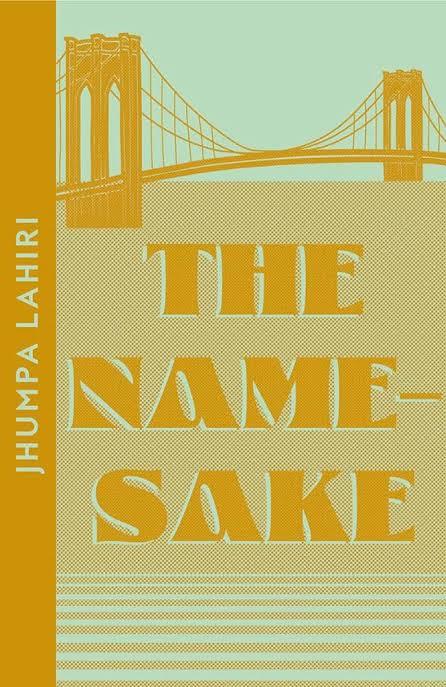
#girlblogging#desiblr#light academia#dark academia#gaslight gatekeep girlblog#romantic academia#this is a girlblog#desi girl#brisbane#queensland#jhumpa lahiri#the namesake#nikolai gogol#gogol ganguli#books and libraries#books and reading#booklr#books & libraries#reading#currently reading#book review#bookblr#spilled words#spilled ink#spilled thoughts#spilled writing#jane austen#wuthering heights#emily bronte#english literature
7 notes
·
View notes
Text
Altruism in Sumeru
I've always been intrigued by the religious undertones of the Akademiya (named Sumeru Institute of Religious Decree in Chinese) and how it connects to the rest of the thematic elements of the region
Religion is a path to truth the same way knowledge is a path towards god
The interconnectedness of nature through both isn't lost on me either
This is the region inspired mainly on India, and though there's very palpable influence of Hindu and Buddhism around the nation, the Akademiya itself doesn't particularly look like the religious institutions of either
A poem of Bengali author Rabindranath Tagore is referenced in Alhaitham's teaser. Tagore is pretty known in China, placing within the 12 most known foreign authors in the country, and his work is studied in schools. That is to say, the main audience of the game could easily recognize the reference to the poem if they paid attention
I bring him up because his work might have also influenced the world building around the Akademiya as well: Tagore defines religion not as a set of beliefs, but as an expression of ideals that seek the well being of a community. His reasoning drew from Indian traditions, especially the concept of Brahman or "the universal consciousness" which originated creation and therefore exists in everything. Therefore, his worldview was one of unity with the world; nature, community, man and god as one, and this unity could only be achieved through introspection and humanistic values such as altruism. Religion is in this sense a code of ethics for the wellbeing of the community.
Tagore was a very significant historical figure in several aspects, but one that stands out is his commitment to education: he valued the arts alongside the sciences, and sought to teach children of lower classes through non conventional methods; the opposite of what Azar and the sages promoted in the game
These themes of community, education, arts, altruism all together take the spotlight in Sumeru through one character: Kaveh
Nahida says Kaveh is closest to understand what it means to be a nation of wisdom, and again this can be reinforced by the influence of Mr Tagore
Kaveh is inspired by Iranian culture, which includes the religion of Zoroastrianism. The lore around the Akademiya also takes a lot from this religion, the names of the darshans and the House of Daena are concepts in the religion
In the collection The Religion of Man, an entire chapter is dedicated to the prophet Zarathustra who founded Zoroastrianism. Tagore writes:
There can be hardly any question that he was the first man we know who gave a definitely moral character and direction to religion and at the same time preached the doctrine of monotheism
Zarathustra was the greatest of all the pioneer prophets who showed the path of freedom to man, the freedom of moral choice, the freedom from the blind obedience to unmeaning injuctions
Though surrounded by believers in magical rites, he proclaimed in those dark days of unreason that religion has its truth in its moral significance, not in external practices of imaginary value; that its value is in upholding man in his life of good thoughts, good words and good deeds
The revelation he announces is to him no longer a matter of sentiment, no longer a merely undefined presentiment and conception of the Godhead, but a matter of intellect, of spiritual perception of knowledge. This is of great importance, for there are probably not many religions of so high antiquity in which this fundamental doctrine, that religion is a knowledge or learning, a science of what is true, is so precisely declared in the tenets of the Gathas. It is the unbelieving that are unknowing; on the contrary, the believing are learned because they have penetrated into this knowledge
Tagore connects his beliefs of altruism and community, influenced by the Hindu concept of Brahma, to the virtue of sacrifice in Zoroastrianism:
It has been a matter of supreme satisfaction to me to realize that the purification of faith which was the mission of the great teachers in both communities, Persia and India, followed a similar line. We have already seen how Zarathustra spiritualized the meaning of sacrifice, which in former days consisted in external ritualism entailing bloodshed. The same thing we find in the Gita, in which the meaning of the word Yajna has been translated into a higher significance than it had in its crude form.
According to the Gita, the deeds that are done solely for the sake of the self fetter our soul; the disinterested action, performed for the sake of giving up of self, is the true sacrifice. For creation itself comes of the self-sacrifice of Brahma, which has no other purpose; and therefore, in our performance of the duty which is self-sacrificing, we realize the spirit of Brahma
Tagore also concludes:
The ideal of Zoroastrian Persia is distinctly ethical
Throughout the Sumeru chapter, we find that the meaning of wisdom isn't realized in discovering or amassing knowledge, but on using knowledge the correct way and respecting rules created for the protection of the community. In this sense, wisdom is ethics, and ethics seek collective well being like in Zoroastrianism
It isn't odd then, that all three talent books describe the motto of Zoroastrianism: good thoughts, good words, good deeds

15 notes
·
View notes
Text
Factories close as Bangladesh police clamp down on protesting garment workers — BenarNews
https://www.benarnews.org/english/news/bengali/garment-strike-11022023154700.html
Street protests by Bangladeshi garment workers who want higher wages have turned violent while hundreds of factories have shut down, crippling the industry that is an engine of the country’s export economy.
At least two people have been killed in street clashes with police since thousands of workers began striking on the outskirts of Bangladesh’s capital last week to demand that they be paid double their monthly salary. As many as 500 garment factories have temporarily closed, authorities and factory owners said Thursday.
87 notes
·
View notes
Note
Dr. Reames, a simple question from someone interested in history but who is not part of the academic world: in order to study Alexander the Great and Ancient Greece in general, how much Ancient Greek does one have to learn? Would you need to learn Demotic Greek or the many other dialects, such as the one from Macedonia? As in, you’d need to learn one or more versions of Ancient Greek?
Thank you in advance! I always enjoy your responses!
How Much Greek Do I Need to Read about Alexander?
It depends on how far you want to go…what’s your end-goal?
If you’ve no desire to make it a profession, the good news is you need very little Greek.
Most ancient Greek and Latin texts are available in translation in the major languages of (European) Classical studies: English, French, German, Italian. Now, if you want them in Polish, or Japanese, or Bengali, you’ll have more of an issue. But the Loeb Classical Library (and LOEB ONLINE) has English translations of virtually all extant (still existing) Greek and Latin sources, and if you’ve got access to a (larger) college library, they probably have them, even if you have to ask them to get things out of storage. Latin is red (PA6156); Greek is green (PA3612). Budé is the French version of Loeb, btw.

Loeb texts also have Greek and Latin on the facing page, but I mention them because they’ve got translations of (almost) everything. One can find cheaper versions without the Greek/Latin from Penguin, Oxford, et al. But those don’t have, say, Aelian, or Athenaeus, or the obscure texts of Plutarch’s Moralia. Loeb does. That said, the Alexander histories (Arrian, Curtius, Plutarch, Diodoros, and Justin) are all available in relatively cheap translations. Much earlier, in answer to a different ask, I listed our main sources on Alexander, extant and lost. It’s a longer read, but perhaps of interest.
(See below for more online sources in translation.)
So, no, you don’t need Greek. But, if you’re at least moderately serious about reading beyond pop history, you will want to learn a few Greek words to better “get” Greek sensibilities. Say, timē (τιμή), which means honor/public standing/esteem, but has all these attendant connotations. If you start reading the Serious Stuff (articles and academic books), authors will throw these around so it’s useful to know them, as they tend to carry an entire freight of meaning we don’t want to explain every time we use them. These are words I make my students learn in my intro to Greek History class (2510), so there aren’t many. (Undergrads put up with only so much, ha.) For Alexander, it’s also useful to know the Greek names of some units, such as the Somatophylakes (the royal Bodyguard of 7), or the Hypaspists (the specialist hoplite phalanx, not the same as the Foot Companions), or even the name of the long pike (sarissa). But you can make do quite well with a vocab of maybe 30± Greek terms.
It's only if you want to pursue research at the advanced (graduate) level that you’d need Greek. Even then, it’s mostly Attic Greek. The only time you’d need dialects is for quite specific study and/or epigraphy (inscriptions). Epigraphers are language specialists. Most of us, even the “pros,” don’t work at that level. But yes, if you’re getting into extensive examinations of passages, it’s good to understand the language for yourself, not have to trust a translation. Translations are, by definition, interpretations.
I hope that encourages some folks to embark on reading the original (primary) sources. Of more import for these is to understand HISTORIOGRAPHY. Even those who can read the Greek, but lack historiographic training, tend to take stuff at face-value when they shouldn’t.
Go HERE for a discussion of historiography (with regard to Alexander). Again, it’s part of a specific ask, but I explain why we need to know something about the historians who are writing our texts, in order to understand those texts. It’s another longer read, but essential.
Almost forgot! If you prefer video, I've also talked about the sources on TikTok: Part I: Intro & Lost Alexander Sources and Part II: Extant Alexander Sources
Some Useful Online Sources to Bookmark:
Perseus (at Tufts.edu): clunky as hell because it’s old (in internet years), but indispensable. English/Greek/Latin/other texts in translation and original language, plus all sorts of other tools, including an image bank. Pitfall: these are translations outside copyright, so old and sometimes problematic. Still, it’s free, and so-so much stuff here. Every person dealing with the ancient Med world has this one on speed-dial. (You can find other online sources with various texts, but Perseus has, again, almost everything; it’s the online Loeb.)
Stoa Org Static: a version of the original where you don’t have to sign in. Takes you to various super-helpful pages, including the Online Suda (a Byzantine encyclopedia you can search: look up “Hephaistion” there. *grin*) Bunch of other helpful links.
Wiki Digital Classicist hypertext list of topics ranging from the Beasley Library (of pottery) to the Coptic Gnostic Library and various online journals. Just click around, see what’s there.
Topos Text: clickable map of places which includes all references to them in ancient sources. So if, say, you want to know where X places is, mentioned in Arrian, you can find it on the map.
PHI Searchable Greek Inscriptions: I have used the tar out of this. It’s much easier than Inscriptiones Graecae, and comes with English translations.
More Online Resources: more links. This is just one of various collections out there.
Again, ALL this stuff is free. Even when you may have to pay (like Loeb Online), the amount of material you can now lay hands on even without a uni library is fantastic.
JSTOR: requires a subscription, but, if you’re a college student or can get access via a uni library, you can look up material for free. Problem: JSTOR has different subscription packages, and only the really big Class-A Research schools have large holdings for Classics. I’m regularly foiled in things I need, as my library is smaller. I use ILL (Interlibrary Loan) a lot. If you can’t get what you want via your school JSTOR or ILL, sometimes you can purchase a solo copy of an article via JSTOR Google Scholar. But (hint) always check the journal’s website itself. It might be cheaper there! (The Ancient History Bulletin, for instance, is super-cheap; check their archives. Karanos [Macedonia only] is FREE.) Same thing sometimes with books. Certain publishers have rental options, Open Access, etc.
Also Academia.edu first: Your savior…if the author is a member, and has uploaded the paper you want. We frequently face restrictions on what we’re allowed to upload, and when. Yet we may list an article we can’t yet release publicly. That doesn’t mean we won’t send it to you privately via email if you message us and ask nicely. 😊 Especially if you’re not providing an entire wishlist, or asking for a book for free. It depends on the person, and whether they have a PDF.
#asks#greek language#alexander the great#studying the classics#Classics#source on Alexander the Great#How much Greek do I need?#ancient Greece#ancient Macedonia
31 notes
·
View notes